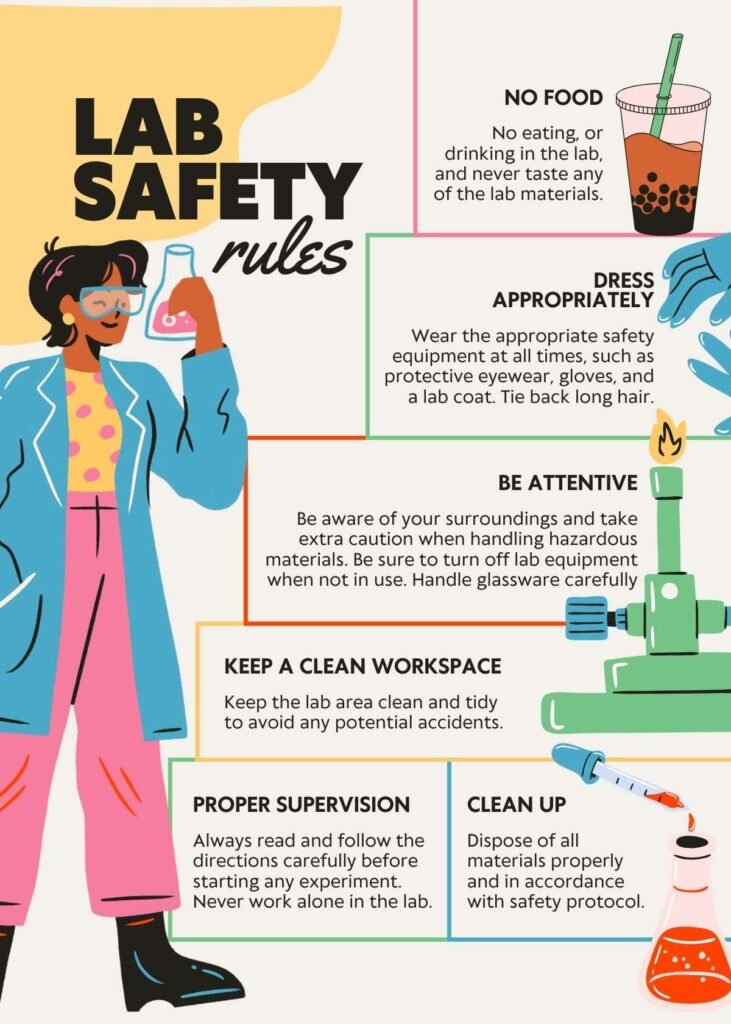
Ensuring safety in a laboratory setting is of utmost importance. Here are some essential lab safety rules for students:
- Follow Instructions:
- Always follow the instructions provided by your teacher or lab supervisor. If you’re unsure about something, ask for clarification.
- Wear Proper Attire:
- Wear appropriate clothing, including a lab coat, closed-toe shoes, and any other safety gear specified for the experiment.
- Use Personal Protective Equipment (PPE):
- Always wear safety goggles or glasses to protect your eyes. Use gloves, aprons, or other PPE as required for specific experiments.
- No Eating or Drinking:
- Do not eat, drink, or chew gum in the laboratory. This helps prevent ingestion of harmful substances.
- Keep the Workspace Organized:
- Keep your workspace clean and organized. Clutter can lead to accidents, and a tidy workspace is more efficient.
- Know the Location of Safety Equipment:
- Be aware of the location of safety equipment, such as fire extinguishers, emergency showers, eye wash stations, and first aid kits. Know how to use them.
- Report Accidents Immediately:
- If you or a classmate is injured, spills something, or notices a hazardous situation, report it to the teacher or supervisor immediately.
- Handle Chemicals Safely:
- Read and understand the labels on chemical containers before using them. Use chemicals in the quantities specified and follow proper storage procedures.
- No Horseplay:
- Do not engage in horseplay or practical jokes in the laboratory. Labs require focus and attention to prevent accidents.
- Understand Equipment Usage:
- Before using any equipment, make sure you know how to operate it correctly. If you are unsure, ask for guidance.
- Be Cautious with Heat Sources:
- Handle hot objects with care, and be aware of the location of hot plates and open flames. Use heat-resistant gloves when necessary.
- Handle Glassware Carefully:
- Inspect glassware before use. Report any broken or chipped glassware. Use caution when handling glass to avoid cuts.
- No Unauthorized Experiments:
- Do not conduct experiments that are not approved by your teacher or supervisor. Follow the designated procedures.
- Work in a Ventilated Area:
- When working with chemicals that produce fumes, make sure you are in a well-ventilated area or use a fume hood.
- Emergency Exit Awareness:
- Know the location of emergency exits and evacuation routes. Be aware of the emergency procedures specific to the laboratory.
These rules are designed to create a safe and productive learning environment in the laboratory. Remember that safety is everyone’s responsibility, and adhering to these rules helps protect both individuals and the broader laboratory community.

No responses yet